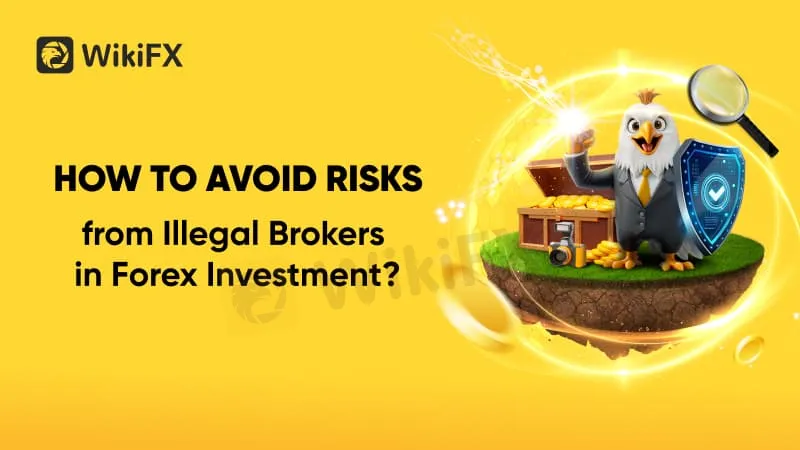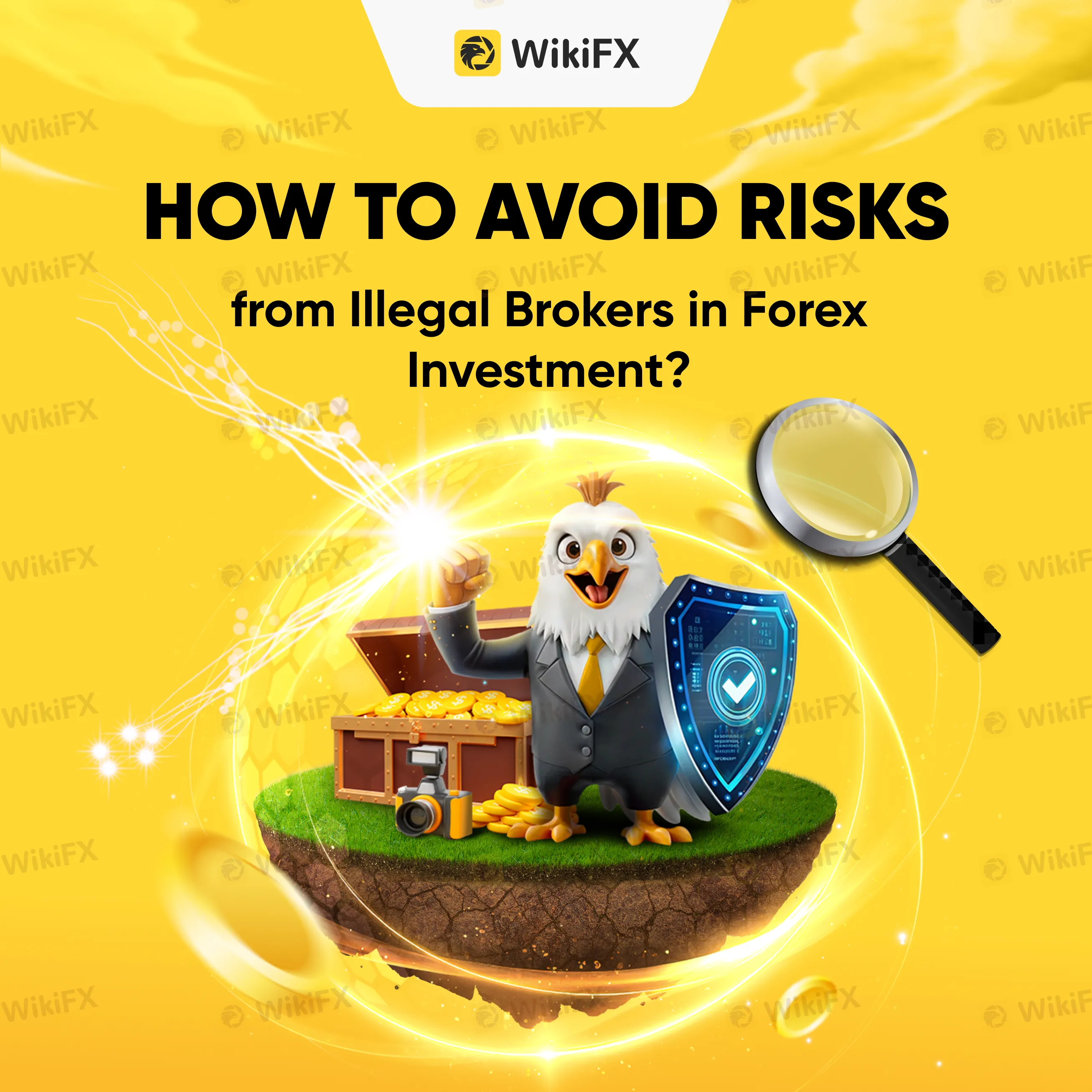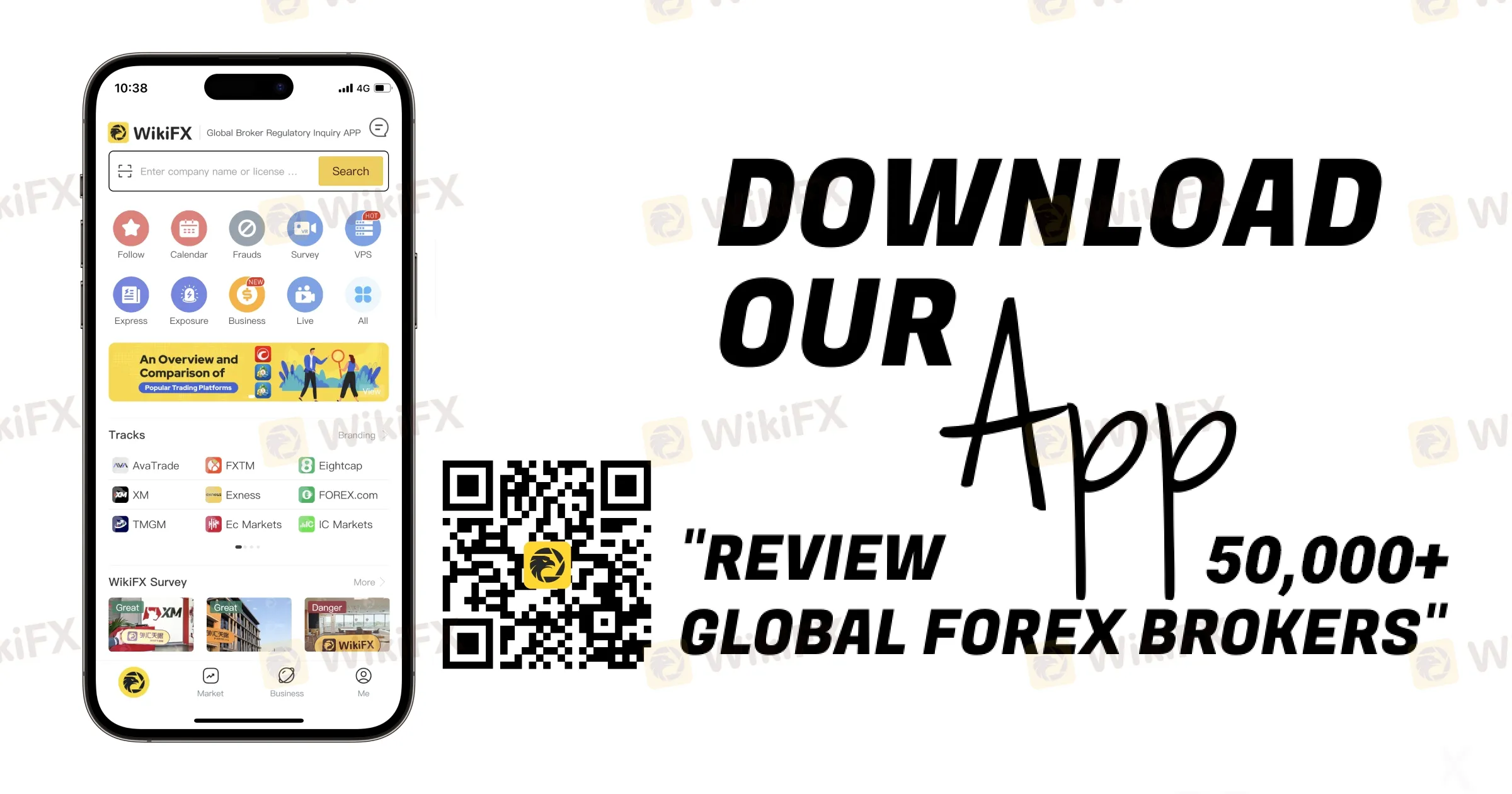简体中文
繁體中文
English
Pусский
日本語
ภาษาไทย
Tiếng Việt
Bahasa Indonesia
Español
हिन्दी
Filippiiniläinen
Français
Deutsch
Português
Türkçe
한국어
العربية
How to Avoid Risks from Scam Brokers in Forex Investment
Abstract:In recent years, the forex market has become a popular choice for global investors due to its high liquidity and 24-hour trading advantages. However, according to the recently concluded WikiFX "3·15 Forex Rights Protection Day " event, we received over 6,000 pieces of evidence exposing rights violations within a short period. This reflects that, although the forex industry is becoming more regulated, fraudulent platforms continue to emerge, causing significant suffering for many victims.

Introduction: Opportunities and Pitfalls in the Forex Market
In recent years, the forex market has become a popular choice for global investors due to its high liquidity and 24-hour trading advantages. However, according to the recently concluded WikiFX “3·15 Forex Rights Protection Day ” event, we received over 6,000 pieces of evidence exposing rights violations within a short period. This reflects that, although the forex industry is becoming more regulated, fraudulent platforms continue to emerge, causing significant suffering for many victims.
These illegal brokers often lure investors with promises of “high returns” and “zero risk,” and some even impersonate well-known brokers. In reality, they profit through false advertising, money schemes, or outright theft of funds. In such a complex market environment, learning to verify a broker's regulatory licenses has become the first line of defense for forex investors to avoid risks.
Broker Regulatory Licenses: Legitimacy is the Lifeline
Each country has its own authoritative regulatory bodies, such as the NFA (USA), ASIC (Australia), and FCA (UK). Brokers operating in these jurisdictions are subject to strict oversight by local regulators. However, investors should be cautious:
- Beware of “Regulatory” Traps: Some platforms claim to hold licenses from certain countries or regions, but these jurisdictions may have lax regulations or be small islands with minimal oversight. While they may issue licenses, the associated risks remain high.
- Verify the Authenticity of Regulatory Numbers: Some illegal platforms provide fake regulatory licenses. Investors must verify the legitimacy of these licenses by checking the broker's name or license number on the official regulatory website.
Before depositing funds, investors must conduct the following checks on a broker:
- Regulatory Bodies: Is the broker regulated by top-tier authorities like NFA, ASIC, or FCA?
- License Scope: Does the license cover all types of services offered by the broker?
- Historical Record: Has the broker been penalized for violations or involved in fund misappropriation cases?
- Fund Segregation: Are client funds held in segregated accounts with third-party banks, and can this be verified?
- Localized Services: Does the broker provide compliant localized services and support?
How Can Investors Quickly Identify Regulatory Risks?

For many forex investors, identifying regulatory traps and verifying license authenticity can be challenging. Due to a lack of in-depth industry knowledge, these risks are often overlooked. How can investors simplify and safely verify the authenticity of regulatory bodies?
By leveraging WikiFX's global expertise and over a decade of industry experience, the WikiFX Rating System's regulatory index can quickly help investors identify regulatory risks.
The regulatory index is a quantitative assessment of a broker's regulatory status, developed by WikiFX's professional team using regulation grading standards, actual regulation values, regulation effectiveness models, and regulation anomaly prediction models. Through rigorous and scientific algorithms, it helps investors minimize trading risks to the greatest extent possible.
Rational Investing Starts with Respecting the Rules
The forex market offers no shortcuts to “overnight wealth” but is riddled with traps that prey on the uninformed. By rigorously verifying broker qualifications and effectively utilizing WikiFX, investors can keep risks within manageable limits. Please remember that safety is the foundation of trading.
Choose Brokers with WikiFX for Safer Forex Investment!

Disclaimer:
The views in this article only represent the author's personal views, and do not constitute investment advice on this platform. This platform does not guarantee the accuracy, completeness and timeliness of the information in the article, and will not be liable for any loss caused by the use of or reliance on the information in the article.
Read more

RM80 Million in Losses After ‘Islamic’ Scheme Falls Apart
A group of 232 investors is urging Malaysian authorities to launch a comprehensive investigation into an Islamic investment scheme that reportedly incurred losses exceeding RM80 million. The scheme, marketed under the guise of Islamic Redeemable Preference Shares (IRPS), is now under scrutiny for alleged misrepresentation and regulatory breaches.

PJT Academy Scam: RM459,000 Lost to a Fake Trading Group
A 73-year-old retiree in Johor Bahru lost RM459,000 to an online investment scam operated by a group calling itself PJT Academy. The group claimed to teach members how to trade stocks using an app called 'USMSG', promising returns of up to 200%.

FCA Flags 10 Unauthorised Firms and Clone Entities in Latest Scam Alert
The FCA has recently flagged multiple entities for offering financial services without authorisation, warning the public to remain vigilant against clone firms and unlicensed platforms that may mislead UK consumers.

Global Traders Sound Alarm Over Dollars Markets' Shady Practices
This article exposes the alarming experiences of global traders with Dollars Markets, a low-rated and blacklisted broker, highlighting serious issues such as withdrawal delays, suspicious payment methods, and possible links to illegal online gambling.
WikiFX Broker
Latest News
Short-Term Pressure Mounts on Gold as Risk Sentiment Improves
Radiant DAO Proposes Compensation Plan for Wallet Losses
How Will the U.S.-China Trade Deal Affect the Dollar and Global Markets?
BitGo Secures MiCA License, Expands Crypto Services Across the EU
Big Changes at Saxo Bank: What Traders and Partners Need to Know
Traders Warned to Stay Alert Amid Growing Exposures for INGOT Brokers
WELTRADE's transformation from Reliable to a Problematic Broker
How UK-China Financial Cooperation Is Shaping Global Resilience
Deriv Review 2025: A Growing Force in Online Trading
Hantec Markets Launches 24/7 Crypto CFD Trading
Currency Calculator


